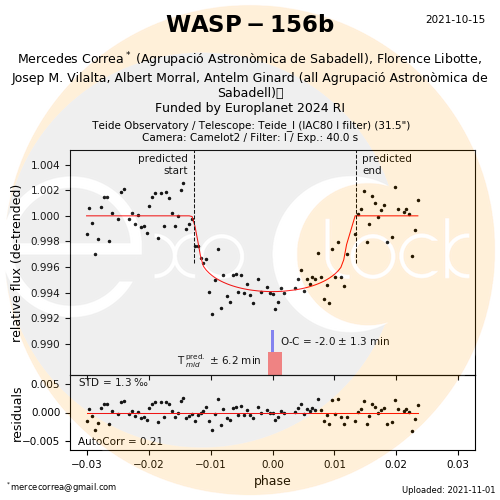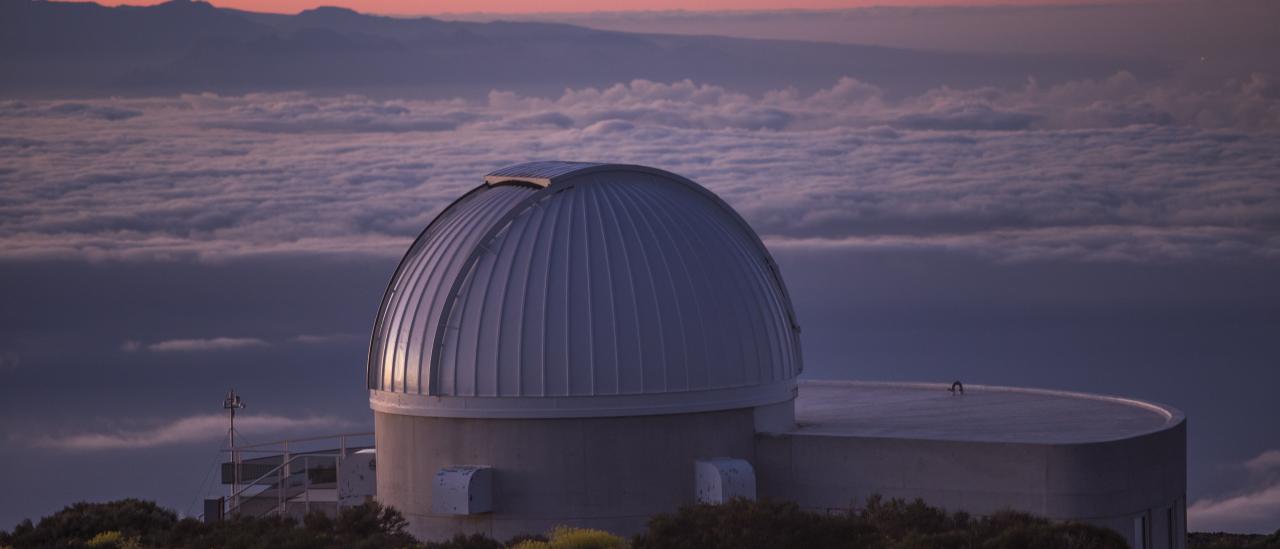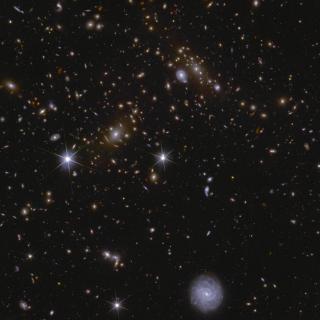Astronomers from the Agrupación Astrónomica de Sabadell together with the Telescopic Operations Technicians of the Instituto de Astrofísica de Canarias, Marta Puig Subirà and Miguel Rodríguez Alarcón, have detected the transit of the exoplanet WASP-156b, catalogued as a high priority objective by the Exoclock project. The depth of the detected transit was only 6 millimagnitudes and will contribute to improve the ephemerides available for the ARIEL (Atmospheric Remote-sensing Infrared Exoplanet Large-survey) mission of the European Space Agency.

Exoclock project:
Kokori, A., Tsiaras, A., Edwards, B. et al. ExoClock project: an open platform for monitoring the ephemerides of Ariel targets with contributions from the public. Exp Astron (2021). https://doi.org/10.1007/s10686-020-09696-3
Light curves in R and I filters:
https://www.exoclock.space/database/observations/WASP-156b_merce_TeideObservatory_Teide_I(IAC80Ifilter)_2021-10-15
https://www.exoclock.space/database/observations/WASP-156b_merce_TeideObservatory_IAC80_2021-10-15
Observation funded by Europlanet. Europlanet 2024 RI has received funding from the European Union's Horizon 2020 research and innovation programme under grant agreement No 871149.





